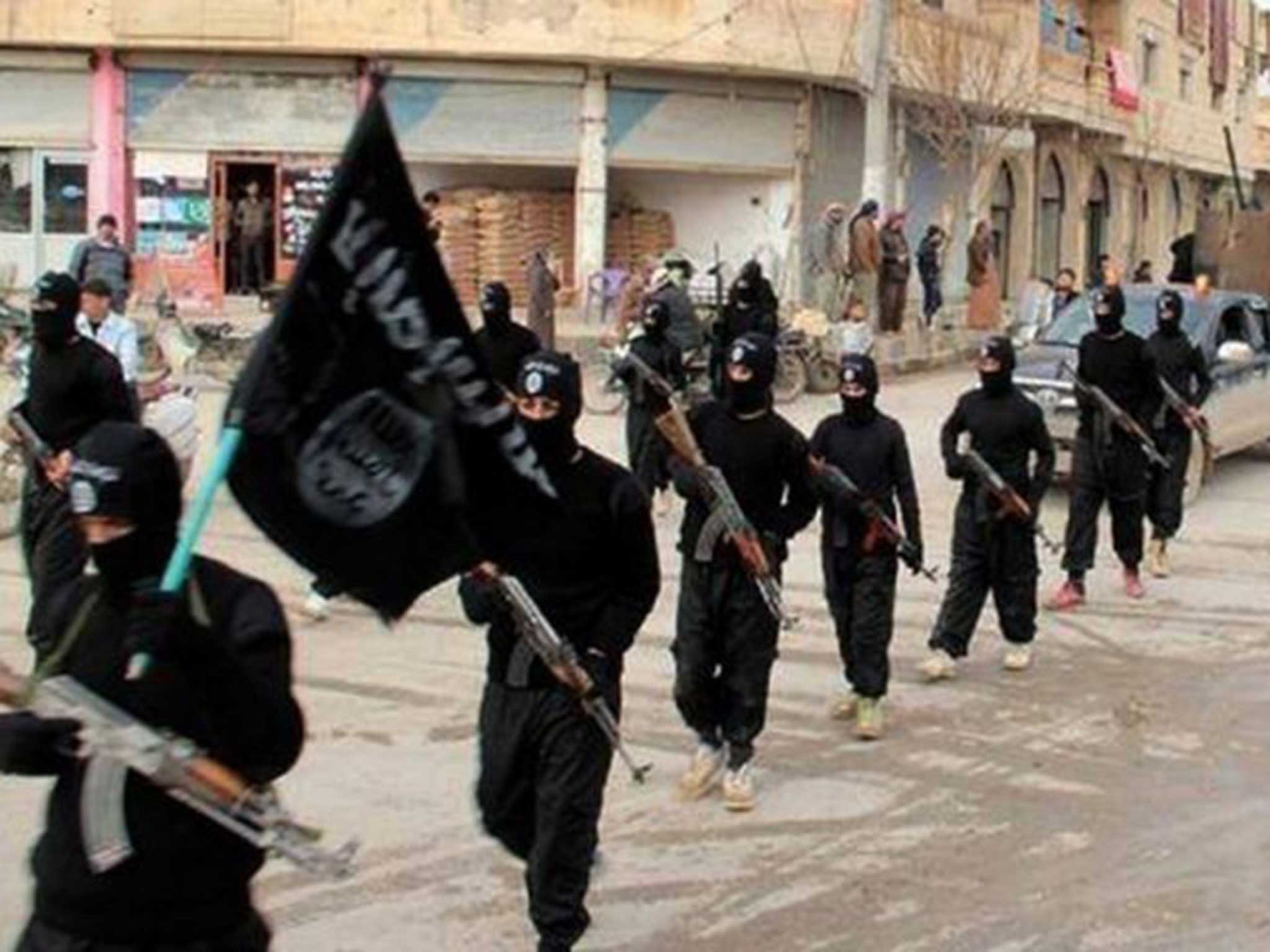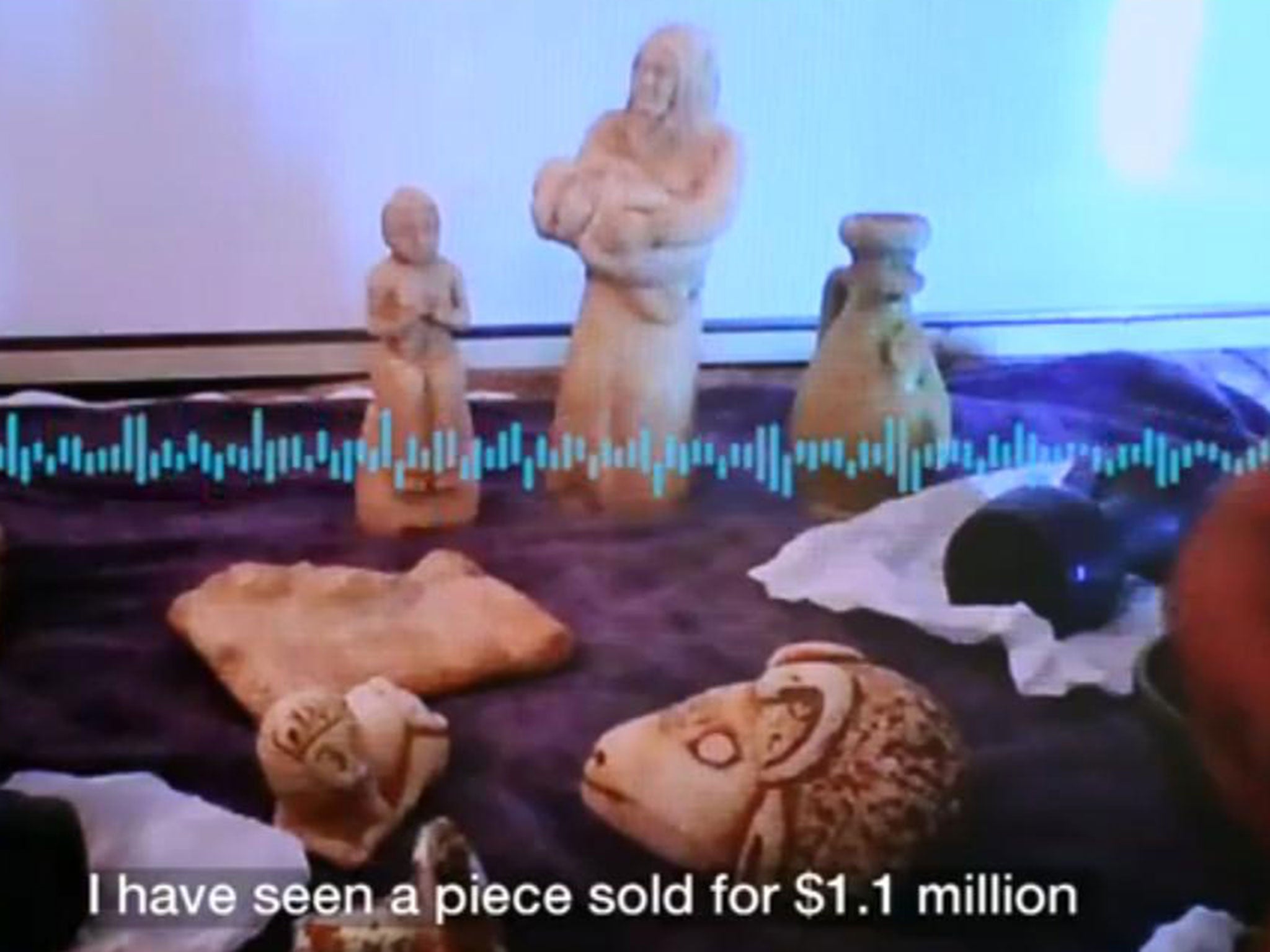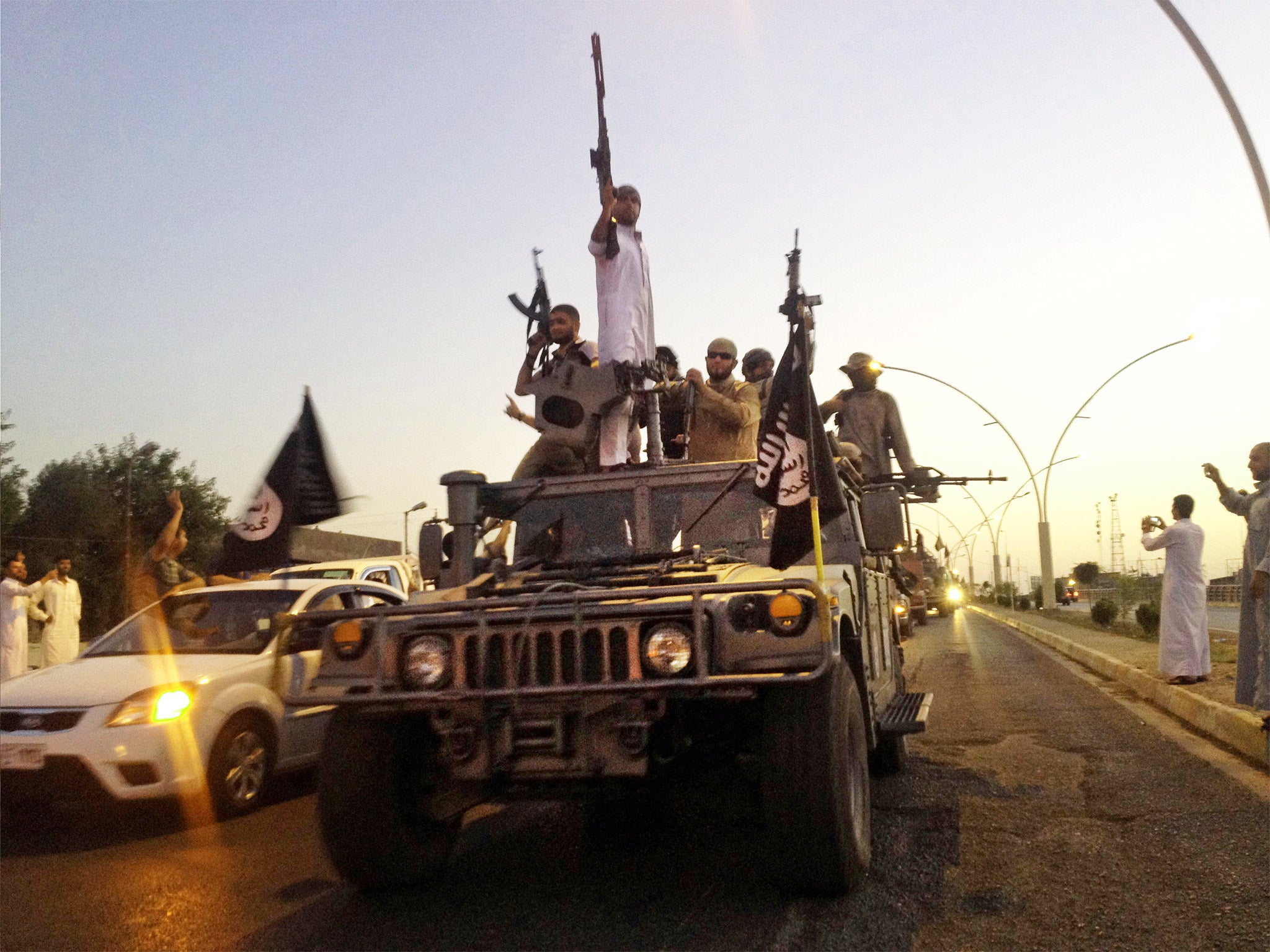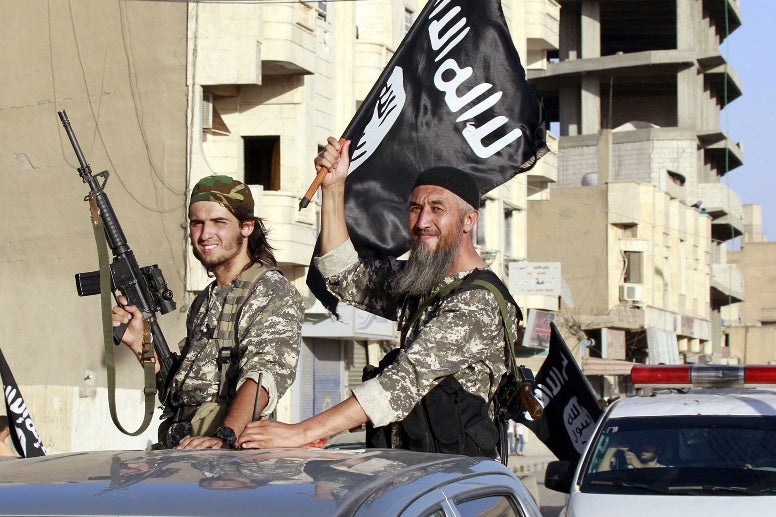Isis partly funded by Syrian looted artefacts worth up to $1m – but who is buying them?
Experts say precious relics are arriving in Europe

Your support helps us to tell the story
From reproductive rights to climate change to Big Tech, The Independent is on the ground when the story is developing. Whether it's investigating the financials of Elon Musk's pro-Trump PAC or producing our latest documentary, 'The A Word', which shines a light on the American women fighting for reproductive rights, we know how important it is to parse out the facts from the messaging.
At such a critical moment in US history, we need reporters on the ground. Your donation allows us to keep sending journalists to speak to both sides of the story.
The Independent is trusted by Americans across the entire political spectrum. And unlike many other quality news outlets, we choose not to lock Americans out of our reporting and analysis with paywalls. We believe quality journalism should be available to everyone, paid for by those who can afford it.
Your support makes all the difference.Looted antiquities from Syria worth hundreds of thousands of pounds are providing a major source of funding for Isis, some of which could be ending up in the UK.
A BBC investigation found the precious goods being trafficked across the Syrian border are providing a major source of funding for Isis, just weeks after British MPs warned collectors in the Gulf states are fuelling the multimillion-pound trade.
One Syrian man explained how he would smuggle valuable artefacts from Aleppo to the border, where he would pay a taxi driver to covertly transport the goods into Turkey and Lebanon.
Another ‘middle-man’ identified only as Ahmed said Isis has an active role in controlling the trade of looted artefacts. "They come from the east of Syria, from Raqqa, all the areas controlled by Isis," he explained.
He claimed those wanting to excavate sites must get permission from Isis inspectors, who monitor the finds and take 20 per cent as a tax.

Looted pieces include statues of animals, vases, gold coins and glasses – with one artefact reportedly fetching $1.1m (£800,000). Ahmed claimed that item dated back to the year 8500BC.
Lebanese policeman Lt Col Nicholas Saad, who has overseen major raids in Lebanon, said Syrian artefacts usually end up in one place. "Lebanon is a transit station, it's one of the the doors that goes to Europe," he explained. "The real money is made in Europe."
His suggestion was echoed by Dr Maamoun Abdulkarim, the archaeologist in charge of Syria's department of antiquities in Damascus, who added: "We are sure through all the sources a lot of objects go from Syria to Europe, in Switzerland, in Germany, in UK - and Gulf countries like Dubai and Qatar.”

No-one in the UK has ever been arrested for selling looted Syrian artefacts but Vernon Rapley, the former head of the Metropolitan Police's art and antiquities squad said he was "quite confident that there have been seizures of material like this".
Elijah J. Magnier, Al Rai's chief international correspondent, told The Independent Isis funds itself through a variety of sources, aside from antiquities, oil revenue and kidnap ransoms.

“Isis imposes taxes on every house, every shop and every car in areas under its control and on merchandise crossing into Iraq government controlled areas," he said.
However, it is clear that Isis is suffering financially, according to Mr Magnier. “I have seen comments made by fighters about a ‘shortage of gasoline’ because the ‘military effort’ requires money, logistics and priority,” he added.
“The West is trying to find out where our funding comes from,” one fighter said. “This 'organ selling' would bring in peanuts in comparison what an Isis army needs each day."
Another militant insisted the group did not have time to collect the bodies of its own fighters from the battlefields, let alone collect the bodies of those killed by the group.
“How could we collect bodies of those we kill and transport them to sell their organs?" he asked.
Join our commenting forum
Join thought-provoking conversations, follow other Independent readers and see their replies
0Comments